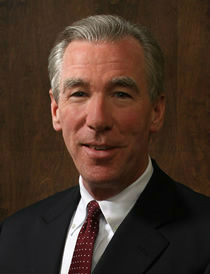
Culture
In each of these cases, the adherents of scientism argue that experts in the field have fully comprehended some matter of social concern.

Garvey
At the beginning of the COVID-19 crisis, I was puzzled about how our reactions to it divided along party lines. There is no obvious reason why Democrats should fear sickness and death more than Republicans. But the division has persisted, indeed hardened; there is clearly something else going on.
One possible cause is that a pandemic invites government intervention, something Democrats are fond of. We've seen more of that from President Joe Biden, blue-state governors and big-city mayors than from their Republican counterparts.
Another reason for our division is not political, though I missed it for a long time because it aligns with party affiliation. It has to do with beliefs about science.
The cognoscenti say that those who object to vaccines, masks, quarantines, tests, crowd controls, and school closings fail to "follow the science." Mainstream media see those objectors as mouth-breathing nimrods who lack the wit or the education to know what's good for them.
This is unfair. There is much we don't know about the progress of the infection or the efficacy of our responses. We used to worry about doorknobs and surfaces; now we don't. We've gone back and forth about masks.
It now seems that the vaccines, although they help prevent severe outcomes from infection, are much less effective at preventing transmission of the omicron variant than they were the delta variant.
It's not that science isn't helpful, but there is a kind of scientism on the secular left that helps explain our disunion on this subject. And it's better aligned with religion than with politics. The division is not confined to public health policy. We see it in disputes over climate change and gender identity and abortion.
In each of these cases, the adherents of scientism argue that experts in the field have fully comprehended some matter of social concern.
For COVID-19, it's the infectious disease experts at the Centers for Disease Control. For climate change, it's NASA, the National Oceanic and Atmospheric Administration and the U.N. Intergovernmental Panel on Climate Change.
Gender identity is the concern of the American Psychiatric Association. In recognizing a constitutional right to abortion in Roe v. Wade, Justice Harry A. Blackmun, former counsel for the Mayo Clinic, mentioned the word "physician" 48 times.
I say "scientism" rather than "science" because there is an almost religious commitment to the creed defined by the experts. And a corresponding resolution to stamp out heresies.
Last year, President Biden's press secretary said the White House was working with Facebook to prevent disinformation about vaccines. Google and YouTube banned ads from videos contradicting "well-established scientific consensus" about the causes of climate change. Amazon pulled Ryan Anderson's book about transgenderism.
And as with other varieties of religious commitment, scientism commits us to a moral code. You're not just mistaken if you don't follow the directions of the experts; you're a bad person. Hence the phenomenon of COVID-shaming and Greta Thunberg's denunciation of the "injustice" of climate change.
But science can't tell us anything about moral responsibility. Its tools are logic and empirical measurement. It can assess whether mRNA vaccines work, and how fast the omicron variant spreads.
But it has no way to solve moral equations like how to weigh the risk of this infection against the importance of visiting the sick, going to church, educating your children, respecting privacy, kissing your grandmother.
Experts tend to picture the world with their own specialty in the foreground. My nephrologist tells me not to drink milk, lest I get kidney stones. He forgets that I need calcium and vitamin D for bones and teeth. Scientism suffers from the same cognitive bias in dealing with COVID-19. Minimizing the risk of infection is not our only challenge in life.
- Garvey is president of The Catholic University of America in Washington, D.C.
Recent articles in the Culture & Events section
-
What is truth?Michael Reardon
-
The 75th anniversary of St. Ignatius of Loyola Church, Chestnut HillThomas Lester
-
The most important prayer you already knowLaura Kelly Fanucci
-
Two years after DobbsRussell Shaw
-
Scripture Reflection for July 21, 2024, Sixteenth Sunday in Ordinary TimeDeacon Greg Kandra


















